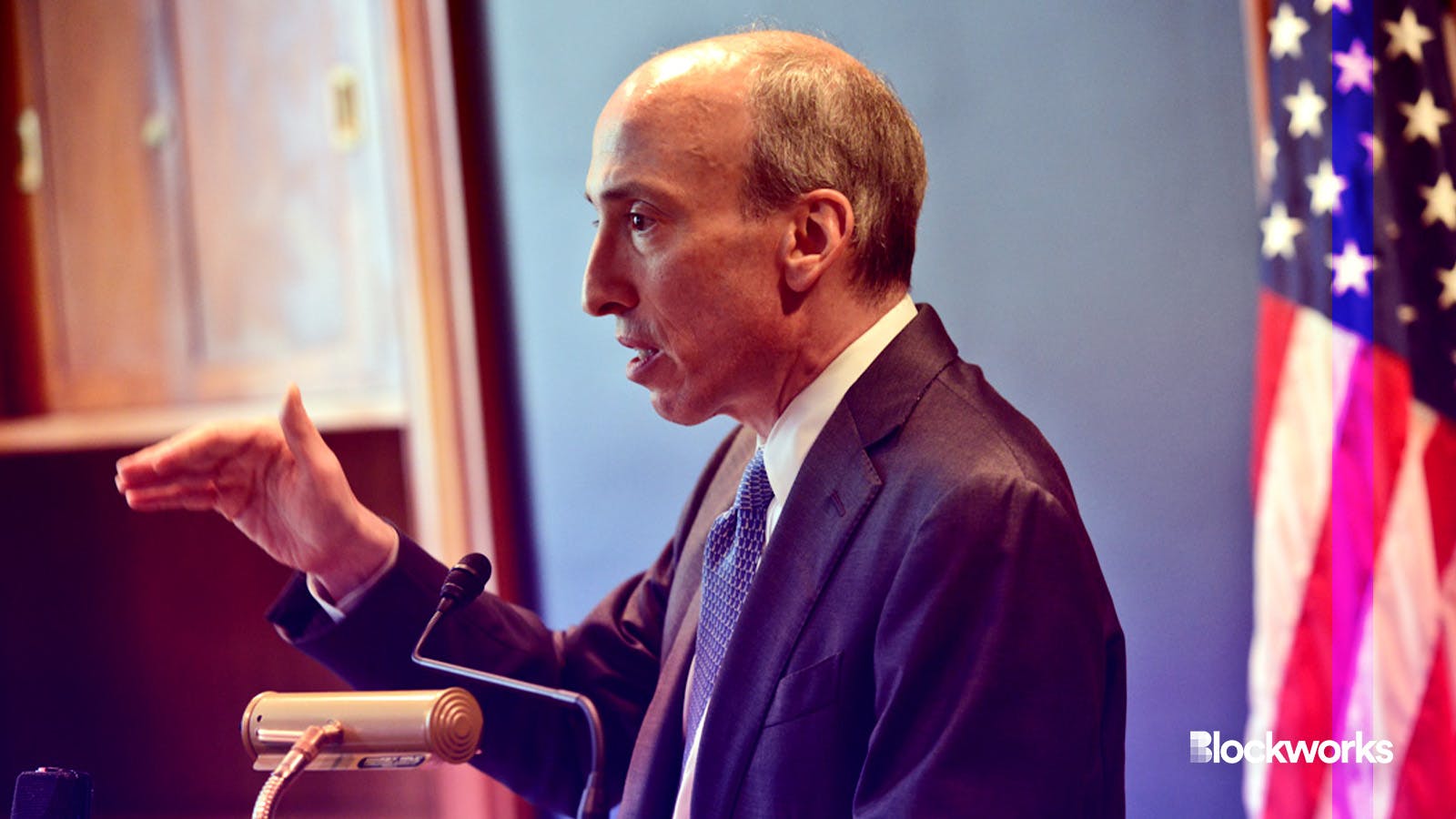New lawsuit challenges SEC’s regulation by enforcement approach
Assistant law professor Todd Phillips noted that the plaintiffs might find a more “amenable” court to the major questions doctrine argument put forth in the suit

SEC Chair Gary Gensler | Third Way Think Tank/"CMI 101: Demystifying Derivatives with CFTC Chairman Gary Gensler" (CC license)
The fight is being taken to the Securities and Exchange Commission.
LEJILEX, a digital asset company, and the Crypto Freedom Alliance of Texas (CFAT) filed a lawsuit against the US regulator in a Texas court on Wednesday.
The plaintiffs claimed in court papers that the SEC has not received the proper authority to regulate digital assets.
“Although multiple SEC Commissioners have recognized for years that Congress has not provided the SEC with broad authority to regulate digital assets — and although Congress has considered dozens of often bipartisan bills related to digital asset regulation in recent years but enacted none of them — the SEC’s recent enforcement actions embrace the novel position that nearly all digital asset transactions involve ‘investment contracts’ under the federal securities laws,” the suit argues.
“Crypto goes on offense in the courts,” commented Jake Chervinsky, chief legal officer at Variant Fund.
Read more: SEC’s Hester Peirce: We don’t have to regulate crypto through the courtroom
Furthermore, the two argue that the SEC’s enforcement actions name digital assets, “not investment contracts, because “they do not involve any kind of ongoing commitment on the part of the asset seller or developer to manage any common venture for the asset buyer’s benefit.”
According to the complaint, LEJILEX “wishes to launch a new digital asset trading platform. However, the company is concerned that the SEC may seek a suit against it at a later date, due to its previous actions.
The SEC filed a suit against Ripple in 2020. In June of last year, it announced actions against Coinbase and Binance.
Read more: Binance and Changpeng ‘CZ’ Zhao face multiple SEC charges
CFAT, on the other hand, “advocates for the responsible development” of crypto policies in Texas. It argued that the SEC’s current dominion over the industry “impedes the ability of other authorities whose jurisdiction may properly extend to digital assets to enter the field.”
The 57-page complaint claims that the SEC has “refused to propose for public comment any regulations setting forth its view on what purportedly brings a digital asset within its regulatory domain — and in fact explicitly denied a recent petition for rulemaking imploring the agency to do so.”
Coinbase attempted to seek regulatory clarity from the SEC last year but was denied by the SEC.
Paul Grewal, chief legal officer at Coinbase, weighed in on the Texas suit, asking “how many suits will it take before the [SEC] gets that all this community asks is to understand the rules so that it can follow them faithfully?”
Todd Phillips, an assistant professor of law at Robinson College, believes that the court filing will allow the Fifth Circuit Court to weigh in on the suit.
“I expect the 5th Circuit to be more amenable to the [major questions doctrine] & other [arguments] than judges in DC & NY. We are almost guaranteed to get a circuit split over whether 1) crypto assets can ever be securities and 2) the [major questions doctrine] prevents the SEC from regulating crypto,” he wrote.
Phillips further noted that he previously helped file amicus briefs in the Coinbase suit, arguing that “because the SEC is just bringing enforcement actions under statute [without] a regulation, there cannot be a [major questions doctrine] violation.”
The major questions doctrine has been a key point for both Coinbase and Binance and essentially states that Congress must specify if it wants an agency to have power over significant matters instead of implying the authority in law.
Coinbase first cited the doctrine in May of last year, arguing that the SEC cannot make unilateral decisions on crypto.
Last month, Judge Katherine Polk Failla told Coinbase attorneys that she wasn’t “sure the crypto industry is so major or extraordinary that I have to find it here,” adding later that she also didn’t want to “take power I don’t have, to stop something I shouldn’t.”
In November of last year, SEC commissioner Hester Peirce said that the SEC “should really be thinking proactively about building a regulatory framework…that would work and allow companies to do business in the United States, and that’s what I’m hoping we can work on in the coming months and years.”
An SEC spokesperson declined to comment on the suit.
Get the news in your inbox. Explore Blockworks newsletters:
- The Breakdown: Decoding crypto and the markets. Daily.
- 0xResearch: Alpha in your inbox. Think like an analyst.






